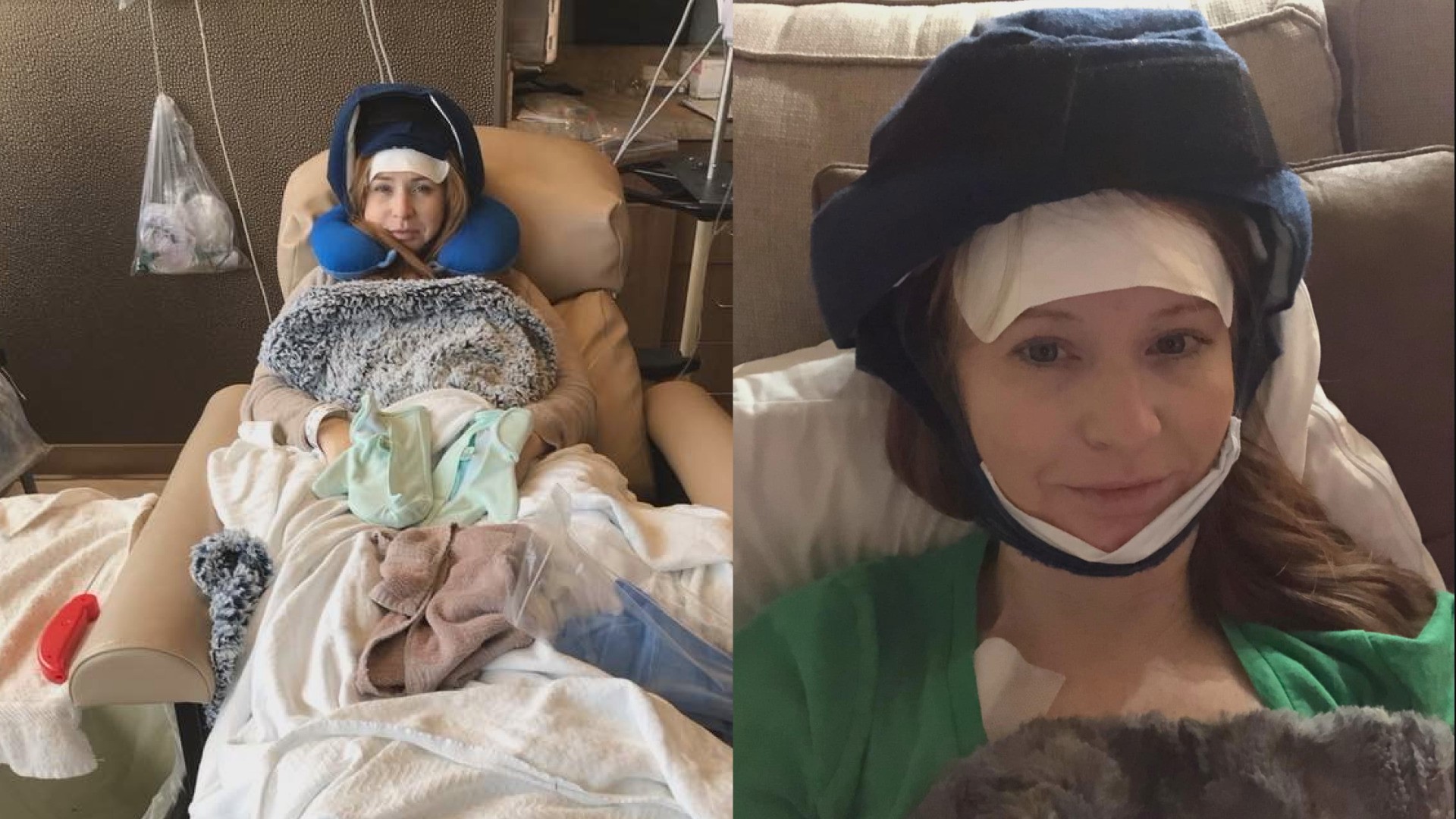KNOXVILLE, Tenn. — Breast cancer takes so much away from patients, including their hair. When Ashley Merrick was diagnosed, she found a method she says saved her locks.
Merrick found out she had breast cancer in August 2021, after doing a self-check and scheduling a mammogram. When she sat down to tell her family, her two young boys asked the question, "Will you lose your hair?"
Merrick started researching and thought she would try taking supplements to stop her hair from falling out during chemotherapy, but through her searching, she found cold capping.
According to the American Cancer Society, cold capping, also sometimes called cool capping or scalp hypothermia, is the practice of, "cooling the scalp with ice packs or cooling caps for a period of time before, during and after each chemotherapy treatment to try to prevent or reduce hair loss."
The point is to tighten up or constrict blood vessels in the scalp, to reach the hair follicles. The method is believed to prevent or reduce hair loss from the scalp.
Merrick used an 8-pound cap covered in ice packs during her treatments and saw positive results. She still lost her eyebrows and eyelashes but maintained the majority of her hair.
She lost a portion from the bottom part of her scalp, but it is not growing back.
She was so pleased with the outcome, she is now helping other patients with cold capping. She travels to the patient's house, with them to treatments, and back home afterward, to ensure the process is done effectively.
"After I went through my process, I thought I would never want to see the inside of a chemo room again, but I realized how it helped me so much emotionally and mentally throughout my journey, I want to raise awareness that this is an option," Merrick said.
The ice pack cap is stored in dry ice an hour prior to treatment.
"We rotate the caps throughout the entire day of treatment, beginning an hour before chemo medicine, during chemo medicine, and four and a half hours after chemo medicine," Merrick said.
Merrick acknowledges some people are perfectly fine with losing their hair and feel a sense of empowerment from shaving their heads. To her, she found confidence in trying to control a part of herself during an uncertain time in treatment.
This method may not work for everyone, Merrick said.
"We tell our patients that 80 percent keep 50 percent of their hair, so while it may not work, it's something you can try, and after the first or second session you don't think it's for you, you can stop," Merrick said.
If you are interested in trying out cold capping with Merrick, you can contact her at amerrickcapping@gmail.com.

